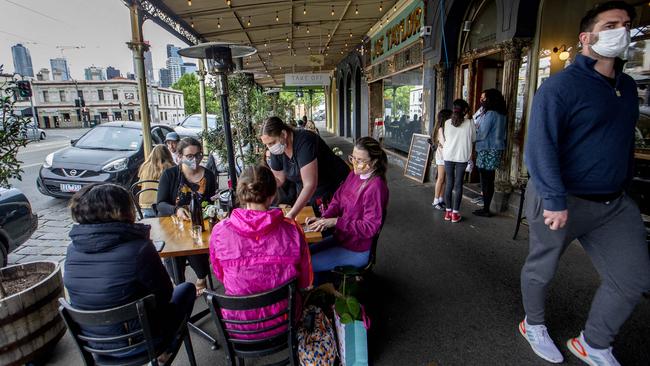Australia’s recession might end but economic crisis still needs work

But just like the definition of a recession can be emotively fraught, so is the bounce back.
With COVID throwing the kitchen, bathroom and laundry sink at the Australian economy, this result signifies a remarkable turnaround.
Remember, it was only nine months ago that the WHO officially declared COVID-19 a pandemic, eight months since the Prime Minster announced a $66bn emergency stimulus package and seven months since the states and territories imposed the bulk of travel restrictions.
And through the entirety of the period in question, more than a quarter of the country was in severe lockdown.
Economic activity ground to a halt here and around the world; unemployment skyrocketed; a recession was inevitable.
But a return to positive growth doesn’t signify an end to the economic crisis. Just because the recession is over doesn’t mean the pain is.
In reality, growth this quarter reflects just how badly the pandemic hit the economy at its onset.
We saw our largest peacetime contraction on record in June, with 3½ years of growth wiped off the economy in a single quarter.
In the months since, we’ve made slow improvements — piece by piece, sector by sector and region by region as the economy reopened. And those improvements should show up as a growing economy on Wednesday.
So, ahead of Wednesday’s release, what do we know and what should we strive for?
Business investment remains the Achilles’ heel of the economy; incentivising business to invest is vital to our future; to make us more productive and innovative.
Households are the backbone of the economy, accounting for roughly half of Australian output. And through COVID, they’ve been smashed as jobs were lost and hours were cut. But as conditions have improved, so too has household spending with retail sales up nearly 7 per cent since last quarter.
But these figures hide some of the story. Much of the rebound in retail sales reflects a period of catch-up as people return to stores, cafes and bars; not to mention the redirecting of spending from things like international travel to domestic retail.
But some households are doing it much tougher than others. There are nearly a quarter of a million fewer people employed today than there were in March, 1.5 million people are receiving JobSeeker or Youth Allowance, and the number of hours on offer for people to work has been slashed. The people impacted by this now face the very real prospect of being left behind in Australia’s recovery.
It goes without saying that a permanent increase to our unemployment benefits is the most worthwhile welfare-enhancing policy available to policymakers.
To cushion the economy, government budgets have fallen into deficit and net debt has risen sharply; as they should. In fact, government spending was the only component of the Australian economy to expand last quarter.
But this support is now being wound back, which will likely see total public demand do little in Wednesday’s figures.
The role of government through the economic crisis will be to set us up for Australia’s next run of growth — using debt for good, incentivising investment and infrastructure, facilitating innovation and productivity, and rebuilding our connections with the rest of the world.
Trade is squarely now a strategic problem, caught up in trade tensions, geopolitical posturing, unco-ordinated global efforts to repair broken supply chains, and changing tastes and preferences such as on climate change.
So yes, Wednesday’s release will be cause to celebrate the end of the recession. But it doesn’t mean Australia’s recovery is complete. There are many parts of the economy that will take more time to revive and even longer to thrive. And during that period, we need to support our most vulnerable people and businesses.
All this means that we need to look beyond the headline numbers. The peak of the crisis can’t be our reference point.
To truly build a better Australia, we cannot simply strive to just improve on our darkest hours.
To be better, we need to lift our expectations and build back better than just a return to normal. If we don’t, we risk letting the real economic pain hide behind the headline numbers.
Harry Murphy Cruise is a senior economist at Deloitte Access Economics and Pradeep Philip is a partner and head of Deloitte Access Economics





This Wednesday, the official data could well confirm that Australia is technically out of recession — with GDP bouncing back into positive territory.